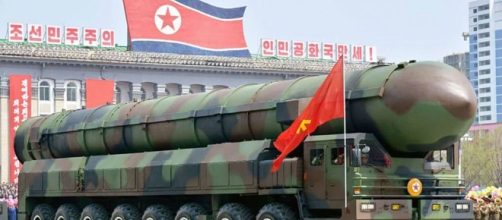North Korea released on Friday, another chilling threat against the U.S. and South Korean Military Drills. Pyongyang vowed that if drills continue, its missiles can quickly massacre thousands of American and South Korea soldiers instantly. This is the most concerning and imminent threat made by the totalitarian state this year.
What is the reaction of the U.S. against this threat?
After North Korea managed to test launch its first possibly intercontinental ballistic missile (ICBM), U.S. and South Korean troops heighten up military drills. This is direct defiance against Pyongyang's threats and a show of force against the rogue nation.
The Korean Central News Agency (KCNA), the solitary state-run news network of the country, said that the increased number of American soldiers in the peninsula is a more effective target for its missiles.
The newly tested Hwasong-14 is termed as a medium ranged missile by the Pentagon, but can easily hit American bases in South Korea. An attack from this kind of missile is promised by Pyongyang to kill all 25,000 American soldiers in active duty in Seoul. It also added that the order to conduct missile strikes solely lies on its leadership, which makes it more volatile.
The United States isn't backing down from its commitment in protecting South Korea from the Northern threat. However, the tension in the peninsula is starting to worry Russia and China, as they hoped the U.S.
will allow diplomatic talks to ensue by halting military drills with Seoul.
The U.S. on the other hand, will also add pressure not only on North Korea but on China as well as it refrains from directly opposing Pyongyang's nuclear ambition and haven't done anything to stop it. The U.S. will place sanctions on small Chinese banks and firms that have known business links with North Korea.
How does China react to U.S. increasing pressure?
Beijing remains adamant over its position as North Korea's sole ally in the region. However, China wants the U.S. to accept a dual-moratorium with Pyongyang as a first step to deescalate the tense situation in the area. The moratorium includes the total halt of U.S.
drills with South Korea in exchange for North Korea's abandonment of its nuclear program. The deal was outright rejected by the U.S. and in the contrary, increased its military exercise with South Korea and Japan.
It is not sure if North Korea's threat is the real thing or not, but many are sure that Kim Jong-Un has something up his sleeve and many suspect that it is a working nuclear missile capable of launch any time. Though a direct attack on the U.S. mainland is still highly doubtful, a nuclear strike in Seoul, Japan or Taiwan is certainly not an impossibility.


